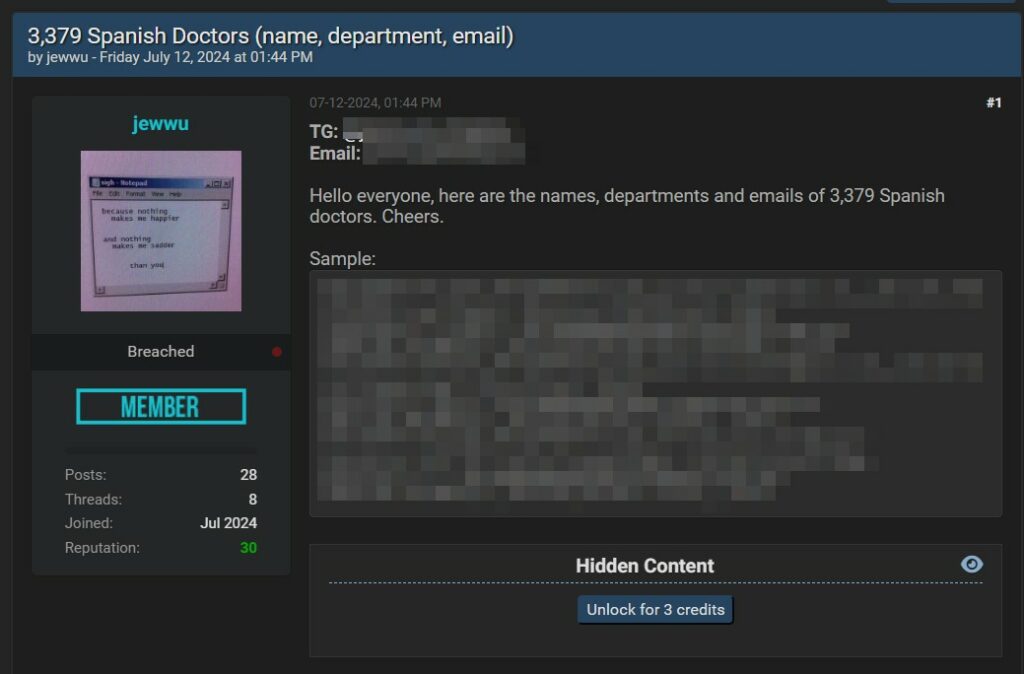
Recently, a threat actor in an underground forum called Breach Forums published an alleged data breach. The post claims to have exposed the names, departments, and emails of 3,379 Spanish doctors.
This information was shared by a user going by the name “jewwu.” At the moment, we cannot confirm the veracity of the news, as we have not had access to the actual data set. Therefore, this article should be considered as ‘intelligence source.’

According to the forum post, the breached data includes names, departments, emails, and other personal details of the doctors. The post included a sample of these data, showing a list with various personal and professional information. However, we will not report sensitive data in the text of the article to protect the privacy of the individuals involved.
The threat actors appear to have targeted a database containing information about doctors in Spain. The post does not specify which organization was breached, but the information could belong to a healthcare institution or a Spanish medical organization. These organizations operate on a national scale and have thousands of employees, including doctors, nurses, and administrative staff.
The recent publication of the data of 3,379 Spanish doctors in an underground forum highlights how cyber fraud is becoming increasingly targeted and sophisticated. Threat actors no longer limit themselves to collecting generic information but directly target specific objectives to maximize their illicit gains and cause the greatest possible damage.
The theft of sensitive data from medical professionals is not random. Hackers know that this information can be extremely valuable on the black market, both for identity theft purposes and for resale to interested third parties. For example, the professional emails of doctors can be used to conduct highly targeted phishing attacks, exploiting the trust of patients and colleagues to obtain further sensitive data or to spread malware.
Moreover, the personal and professional details of doctors can be exploited to create false and credible profiles, with the aim of gaining access to financial resources or to confidential healthcare information. These attacks not only jeopardize the personal security of the doctors but can also compromise the security of the entire healthcare infrastructure.
Follow us on Google News to receive daily updates on cybersecurity. Contact us if you would like to report news, insights or content for publication.
